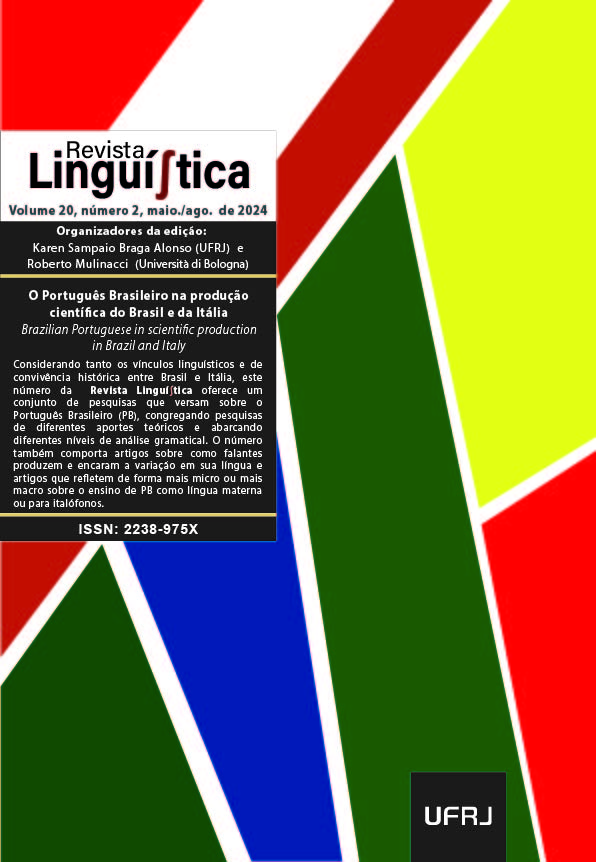Produção e processamento de variantes: o caso dos pronomes acusativos de terceira pessoa em português brasileiro
DOI:
https://doi.org/10.31513/linguistica.2024.v20n2a63968Resumo
Dadas as duas possibilidades de realização lexical dos pronomes acusativos de terceira pessoa no português brasileiro, um normalmente adquirido pelas crianças (pronome forte) e outro adquirido via instrução escolar (pronome clítico), este estudo procurou compreender se a produção da variante clítica pode ser estimulada devido ao grau de monitorização da fala e se essa variação se observa no processamento destes pronomes. Por meio de duas tarefas de produção (uma espontânea e uma induzida) e uma de processamento (sentence-matching), observou-se que o pronome forte é priorizado na fala espontânea e o pronome clítico é priorizado na fala em situações mais monitorizadas. A tarefa de sentence-matching não apresentou diferenças no tempo de reação à leitura de itens com estes dois pronomes, o que poderá advir ou da inibição do pronome forte, ou da facilitação do pronome clítico após o seu uso.
Palavras-chave: Português brasileiro. Pronomes acusativos de terceira pessoa. Processamento da variação linguística. Monitor sociolinguístico.
Downloads
Downloads
Publicado
Edição
Seção
Licença
Copyright (c) 2025 Revista Linguíʃtica

Este trabalho está licenciado sob uma licença Creative Commons Attribution-NonCommercial 4.0 International License.
Autores que publicam na Revista Linguí∫tica concordam com os seguintes termos:
Os autores mantêm os direitos e cedem à revista o direito à primeira publicação, simultaneamente submetido a uma licença Creative Commons que permite o compartilhamento por terceiros com a devida menção ao autor e à primeira publicação pela Revista Linguí∫tica.
Os autores podem entrar em acordos contratuais adicionais e separados para a distribuição não exclusiva da versão publicada da obra (por exemplo, postá-la em um repositório institucional ou publicá-la em um livro), com o reconhecimento de sua publicação inicial na Revista Linguí∫tica.

A Revista Linguí∫tica é uma revista do Programa de Pós-Graduação em Linguística da UFRJ e se utiliza da Licença Creative Commons - Atribuição-NãoComercial 4.0 Internacional (CC-BY-NC)









